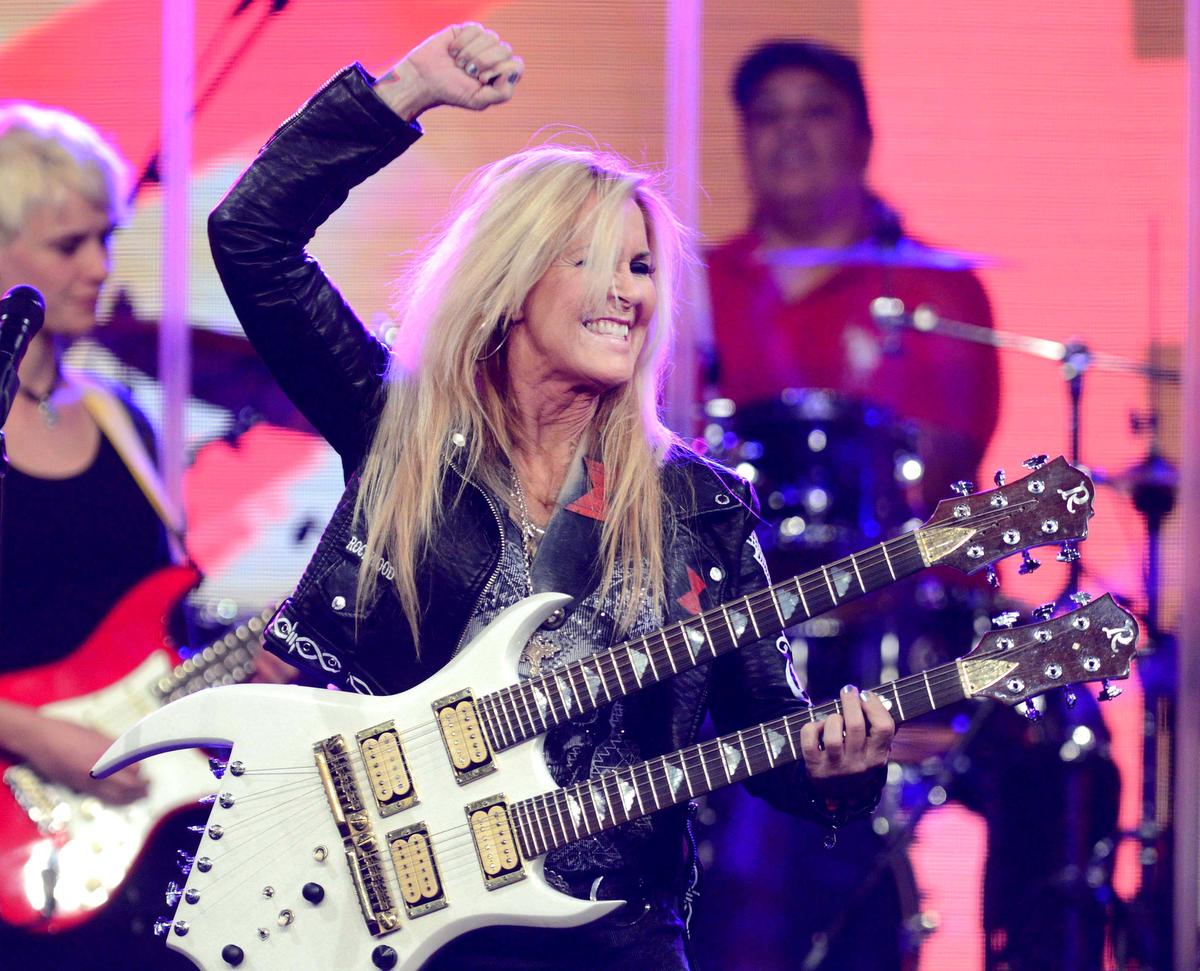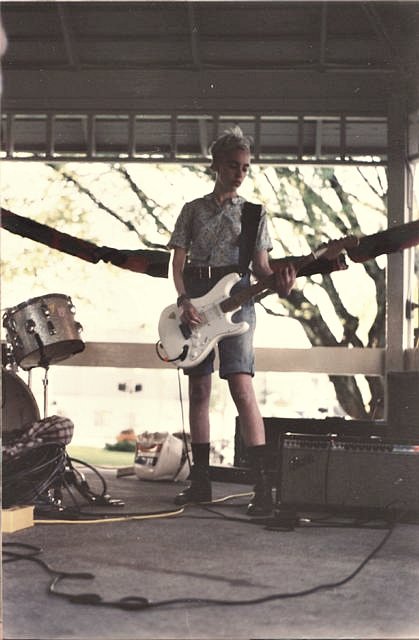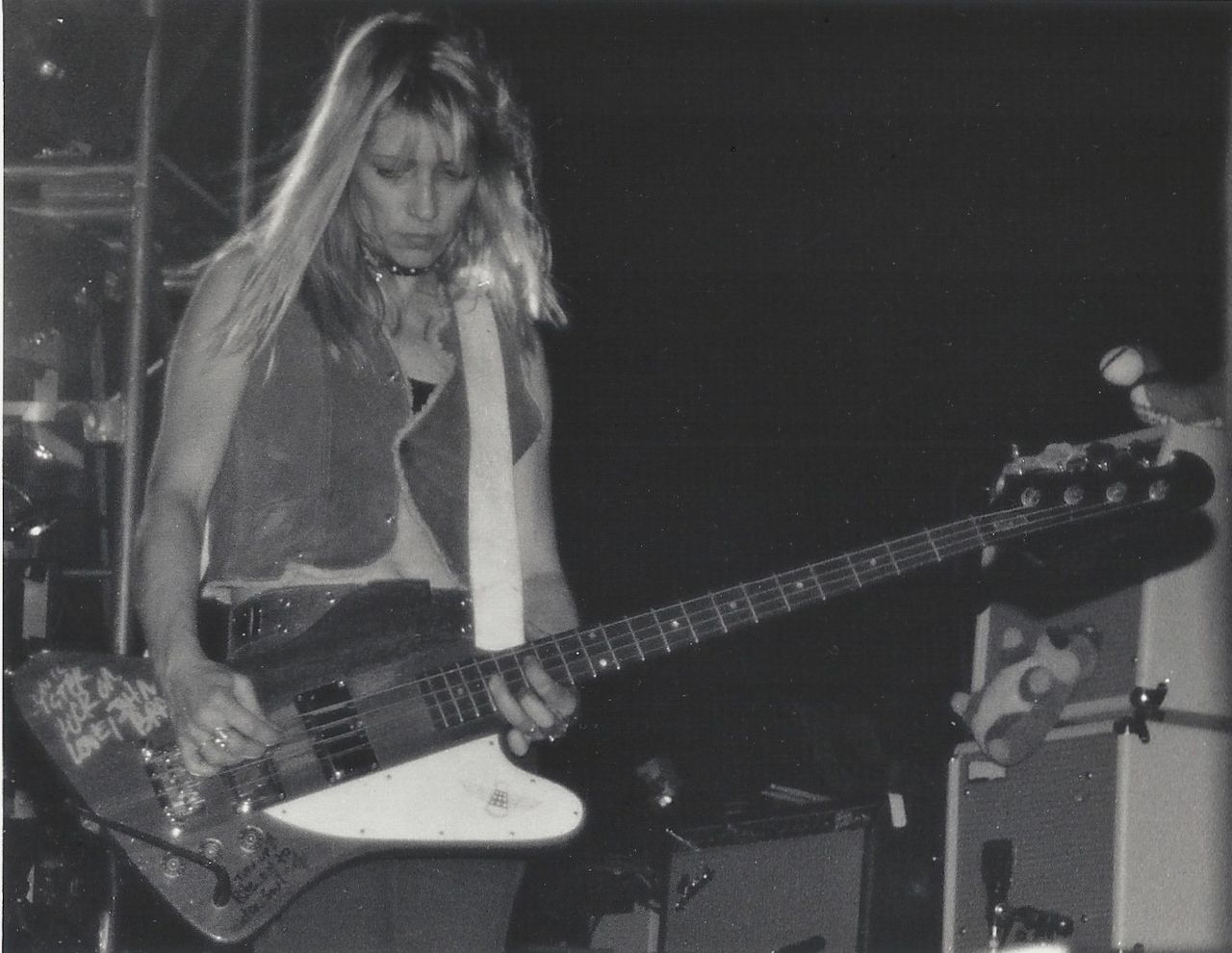At the moment, there are currently only 47 women inducted into the Rock & Roll Hall of Fame despite there being over 200 inductees. This includes the one-woman force of nature, Joan Jett, who has said that there really should be more women on the list alongside her — and rightfully so. Women have consistently been overlooked in the male-dominated genre, and while icons such as Patti Smith and Joni Mitchell have long been enshrined, there are still many virtuosos that have yet to be recognized.
Let’s get to know 5 female guitarists who have completely changed the game, and thus deserve their own respective places in the hallowed halls of rock.
Lita Ford – The Runaways

at the She Rocks Awards at NAMM
in Anaheim on Saturday, January 21, 2017. (Photo by Bill Alkofer, Orange County Register/SCNG)
It’s only fitting that we start with The Runaways guitarist Lita Ford. The Runaways debuted their self-titled album in 1976, shocking the world with their punk-derived attitude. What’s interesting about this all-female band is how they turned their weaknesses into strengths. The simplistic, straightforward sound that accompanied their riotous lyrics assured every man, woman, and pre-teen that they were indeed listening to The Runaways.
But there was a method to the madness. Ford has explained that when she started playing in The Runaways, she didn’t use any guitar pedals, as there was no need for one given the minimalist set-up that was required for the sound they wanted to achieve. Ford was able to demonstrate her technical guitar prowess when The Runaways split up in 1979. The two pedals that she used most during her solo stint were the Boss DD3 and Jerry Cantrell Wah Wah, which can be heard in her hits Kiss Me Deadly and Close My Eyes Forever.
Kathi Wilcox – Bikini Kill

Not all punk acts were created equal. At a time when the punk scene was a toxic place where women endured ridicule and harassment, the Riot Grrrl movement was born. Bikini Kill founding members Kathi Wilcox, Tobi Vail, Kathleen Hanna, and Billy Karren were at the forefront of this movement, redefining subversion to include righteous female voices.
This is evident in the song “Rebel Girl”, which became a rallying cry for Riot Grrrls everywhere. Wilcox and Bikini Kill’s influence doesn’t end there, as they’ve inspired bands like Sleater-Kinney and the notorious Pussy Riot to keep the movement alive. Wilcox currently plays bass for The Julie Ruin.
Annie Clark – St. Vincent

Annie Clark, better known as her St. Vincent monicker, won the award for the Best Rock Song at the 2019 Grammy Awards for “Masseduction”, which many consider a pivotal point for modern rock music. Gone are the days of the dawdling 5-minute guitar solos, which have been replaced with succinct riffs that emphasize technicality and sonic mastery. There may be no one that embodies these values more than St. Vincent.
Clark has worked with the greatest musical minds throughout her long career. She’s collaborated with the likes Talking Heads’ David Byrne, Sufjan Stevens, and super-producer Jack Antonoff, bridging art rock and the mainstream in the process. As a testament to this, Ernie Ball Music Man approached her back in 2015 and made her the first woman to design her own line of signature guitars for the mass market.
Kim Deal – The Pixies & The Breeders

The Pixies are known for kicking off the grunge phase of the 1990s, influencing acts such as Nirvana, Radiohead, and Weezer. Kim Deal had a pivotal role in the band’s success, as she co-wrote some of their biggest hits such as “Gigantic” and “Silver”.
When her time with The Pixies was up, Deal formed and fronted The Breeders. The Breeders quickly became staples of the alternative rock scene, with even claiming that their album Pod “changed his life.”
Kim Gordon – Sonic Youth

Sonic Youth championed noise rock, and Kim Gordon was the pioneer that made it all possible. After starting the band with Thurston Moore in 1981, she went on to lead Sonic Youth in carving out their own space in a scene that had seen nothing like them before. They pushed a brand of noise-punk and experimental rock music and achieved mainstream success without compromising their band’s vision and sound.
Sonic Youth became a household name, and years later so would Gordon, as she would go on to publish her memoir Girl In A Band and continue to be an influence for women in music all over the world.






